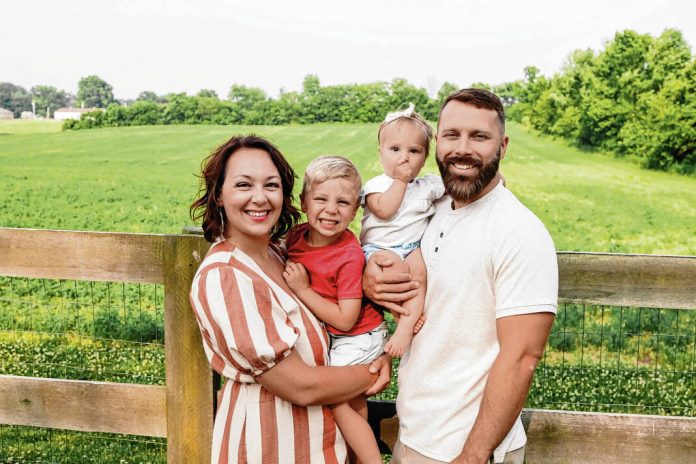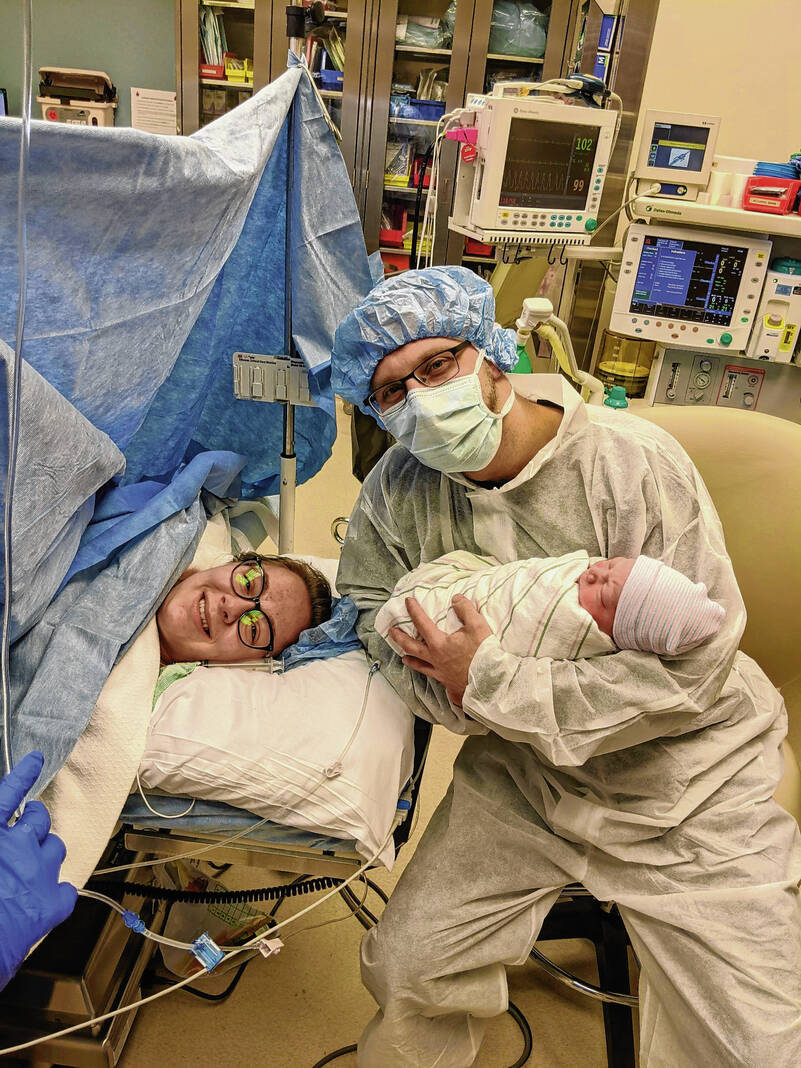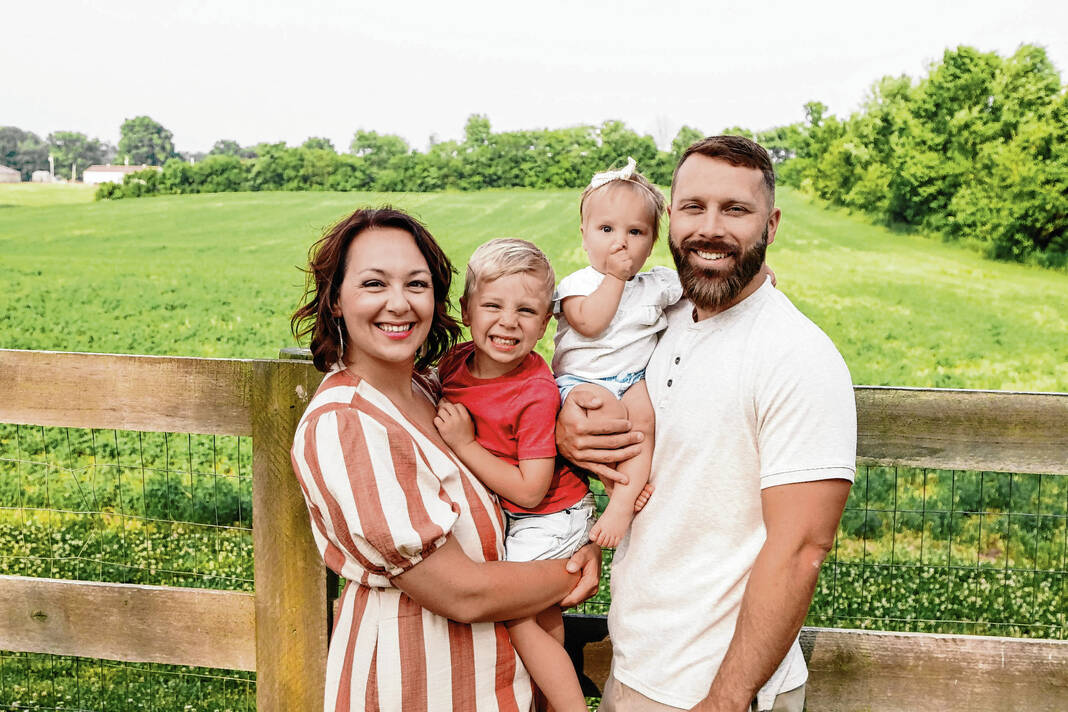Hannah Gill’s first experience with childbirth was anything but planned. Going with the flow like a lot of first-time moms, Gill listened to her doctor and planned a traditional hospital birth. Everything was fine as labor began, but quickly turned to troublesome as Gill continued to push for four hours, not making enough progress.
Gill’s medical professionals explained that she needed an emergency cesarean section surgery, and since Gill didn’t have any warning that it could happen ahead of time, she wasn’t properly prepared.
“It was really traumatic for me,” Gill said. “I realized after that I didn’t feel like my birth class leading up to [labor] didn’t educate me on all the options I had.”
After looking back at her own misunderstood and traumatic experiences, Gill decided to get to the root of the issue and create change in the childbirth community – by becoming a doula.
Doulas aren’t one-size-fits-all, Gill says. The technical definition of a doula is simply someone who is not formally trained in obstetrics that can support the pregnancy, childbirth and postpartum portions of motherhood, but similar to other medical professionals, doulas can specialize in different things.
For example, Gill likes to focus on VBACs, or vaginal birth after cesarean. This is when people who had a cesarean previously decide to try to birth vaginally, something Gill decided to do for her second pregnancy, despite some pushback from the medical community.
Gill said many doctors and hospitals prefer to do cesarean procedures only if their patient previously had a C-section, because of increased risks.
According to The American College of Obstetricians and Gynecologists (ACOG), the most severe risk is that a patient attempting a VBAC may experience a rupture to their uterus, should their cesarean scar break open during birth. The ACOG did explain that this concern is rare, and mainly worry about this if the pregnancy is deemed high-risk.
On the other hand, some of the benefits of a VBAC can be that the patient would have a shorter recovery period, they wouldn’t have to undergo another serious procedure and there is a lesser chance of infection.
Because of how traumatic Gill’s cesarean procedure was, she decided to learn about VBAC options to prepare for her second birth. She said the two experiences were a night and day difference, with her whole labor with her second child lasting less than five hours.
With the newfound knowledge she gained in between her pregnancies, she took a class to become a doula during her pregnancy with her second child and opened up her business months after her daughter was born.
She said that more than anything, she wanted to teach others that not everyone has to follow the same cookie-cutter procedure.
“We’re all individuals, we all have different needs with our pain, our pregnancies and our births,” Gill said. “In general, for a low-risk health woman with healthy pregnancies and no complications, letting birth unfold on its own without a bunch of unnecessary interventions is going to be the most optimal, safest option.”
Along with her business, called Ebb and Flow Birth Co., Gill also created some reading materials for pregnancies she might not necessarily be able to take on.
Gill said that doulas are essentially on call almost all the time, as they’re normally waiting for their clients to give birth. The more clients a doula takes on, the more births and pregnancies the doula has to worry about. Because of this, Gill said she’s booked up for the rest of the year, still maintaining two other full-time jobs — being a mom of two and working at a biotechnology company.
Her podcast and social media page offers free educational resources for expectant mothers – regardless of whether they’re her client or not. Her Instagram, @ebbandflowbirthco, has garnered over 1,200 followers in just one year.
Lucy Gentry was Gill’s very first client. Gentry said she originally didn’t plan on using a doula, but after Gill, a family friend, approached her while she was pregnant, Gentry decided to give it a try. Thankfully, she said she’s so glad she did.
“Hannah was amazing through the whole process,” Gentry insisted.
It was great that Gentry had an extra support system during birth, she said, because her birth didn’t go anything like how she had planned. Gentry wanted an unmedicated water birth, but ultimately received an epidural and had to be induced.
“I didn’t end up getting to have the birth I wanted at all and I feel like [Hannah] kind of saved it for me. I’ll definitely be using her for all future births as well,” Gentry said.
For anyone who may be feeling apprehensive about using a doula, Gentry said it’s worth trying.
“Go for it, because it will not negatively affect you. It’s only going to benefit you,” Gentry said. “Especially for your first pregnancy, you’re gonna have full support for anything.”
Gill echoed these thoughts, only warning that people thoroughly interview potential doulas. She said it’s all about finding the right match.
“People might not connect with me and I might not connect with them, and that’s OK,” Gill said. “We’re going to be in close contact, so I want us to feel comfortable with each other.”
Editor’s note: Due to a typo, this story previously gave the wrong definition of a doula. The typo was corrected at 10:46 a.m. July 15.








